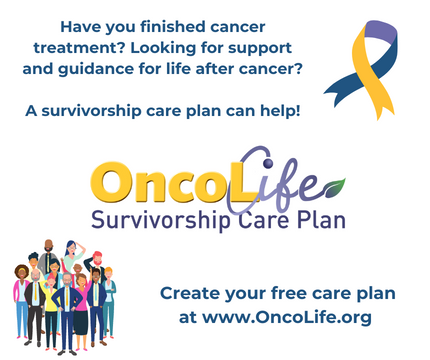Telotristat (Xermelo™)
Pronounce: tell-o-tre-stat
Classification: Tryptophan hydroxylase inhibitor
About Telotristat (Xermelo™)
Telotristat is used to treat diarrhea associated with carcinoid syndrome, which is seen in patients with carcinoid or neuroendocrine tumors. These tumors cause the body to make too much of certain hormones, including serotonin, which leads "carcinoid syndrome." Overproduction of serotonin causes diarrhea. Telotristat is a medication that slows down or stops tryptophan hydroxylase, which lessens how much serotonin is made. Telotristat is often used with another type of medication called a somatostatin analog (octreotide, lanreotide).
Table of Contents
How to Take Telotristat
Telotristat is a tablet taken by mouth three times daily. It should be taken with food. If you are using telotristat in combination with short-acting octreotide, you should take this medication 30 minutes before the octreotide. If you miss a dose, take the next dose at your regular scheduled time. You should not take 2 doses at the same time to make up for a missed dose.
It is important to make sure you are taking the correct amount of medication every time. Before every dose, check that what you are taking matches what you have been prescribed.
This medication can interact with certain medications including: clozapine, hydrocodone, and nimodipine, and CYP3A4 substrates including but not limited to: alprazolam, amiodarone, apixaban, carbamazepine, dexamethasone escitalopram, itraconazole, ketoconazole, losartan, oxycodone, rivaroxaban, and tacrolimus. Be sure to tell your healthcare provider about all medications, vitamins, and supplements you take.
Storage and Handling
Telotristat is dispensed in a monthly case (28 day supply). Each monthly case contains four boxes (1 per week), which contain 7 daily dose packs. It should be stored at room temperature. Keep containers out of reach of children and pets.
Where do I get this medication?
Certain cancer medications are only available through specialty pharmacies. If you need to get this medication through a specialty pharmacy, your provider will help you start this process. Where you can fill your prescriptions may also be influenced by your pharmaceutical insurance coverage. Ask your health care provider or pharmacist for assistance in identifying where you can get this medication.
Insurance Information
This medication may be covered under your prescription drug plan. Patient assistance may be available to qualifying individuals without prescription drug coverage. Co-pay cards, which reduce the patient co-pay responsibility for eligible commercially (non-government sponsored) insured patients, may also be available. Your care team can help you find these resources if they are available.
Possible Side Effects of Telotristat
There are a number of things you can do to manage the side effects of telotristat. Talk to your care team about these recommendations. They can help you decide what will work best for you. These are some of the most common or important side effects:
Constipation
This medication may cause constipation, which can be serious. If you experience constipation or persistent, worsening abdominal pain, stop taking this medication and contact your healthcare provider.
Nausea and/or Vomiting
Talk to your doctor or nurse so they can prescribe medications to help you manage nausea and vomiting. In addition, dietary changes may help. Avoid things that may worsen the symptoms, such as heavy or greasy/fatty, spicy or acidic foods (lemons, tomatoes, oranges). Try antacids, (e.g. milk of magnesia, calcium tablets such as Tums), saltines, or ginger ale to lessen symptoms.
Call your doctor or nurse if you are unable to keep fluids down for more than 12 hours or if you feel lightheaded or dizzy at any time.
Headache and Fever
Your healthcare provider can recommend medications and other strategies to help relieve headache pain. Report any temperature of 100.4°F or 38.0°C or greater to your healthcare provider.
Decrease in Appetite
Nutrition is an important part of your care. Cancer treatment can affect your appetite and, in some cases, the side effects of treatment can make eating difficult. Ask your oncology care team about nutritional counseling services at your treatment center to help with food choices.
- Try to eat five or six small meals or snacks throughout the day, instead of 3 larger meals.
- If you are not eating enough, nutritional supplements may help.
- You may experience a metallic taste or find that food has no taste at all. You may dislike foods or beverages that you liked before receiving cancer treatment. These symptoms can last for several months or longer after treatment ends.
- Avoid any food that you think smells or tastes bad. If red meat is a problem, eat chicken, turkey, eggs, dairy products, and fish without a strong smell. Sometimes cold food has less of an odor.
- Add extra flavor to meat or fish by marinating it in sweet juices, sweet and sour sauce, or dressings. Use seasonings like basil, oregano, or rosemary to add flavor. Bacon, ham, and onion can add flavor to vegetables.
Important but Less Common Side Effects
- Depression: This medication can cause mood changes. If you experience ongoing feelings of sadness, hopelessness, decreased interest, and inability to participate in daily activities because of your mood, contact your healthcare provider.
- Peripheral Edema: This medication can cause edema, which is swelling due to an accumulation of fluid. This typically occurs in the lower extremities (feet, legs, and ankles) or hands. Report any swelling you experience to your healthcare provider.
- Flatulence: This medication can cause gas, bloating, burping or gas pain. This can be embarrassing in public situations. Consider using a flatulence deodorizer pad that contains activated charcoal. When placed in your undergarments, it can reduce the odor associated with excess gas. There are also some over-the-counter medications available to relieve gas pain and bloating. Certain foods can aggravate flatulence. You may want to keep a record of the food you have eaten to help identify triggers. Talk to your healthcare provider before starting any medications or if this side effect is causing distress.
Reproductive Concerns
You should consult with your healthcare team before becoming pregnant, fathering a child, or breastfeeding while receiving this medication.
